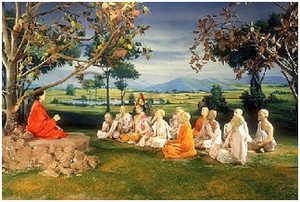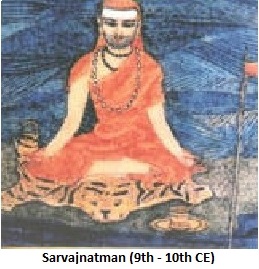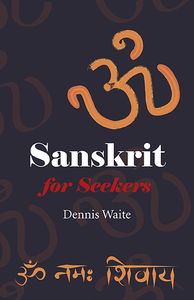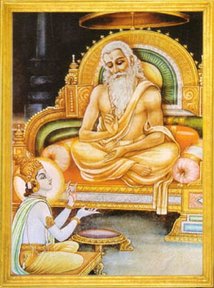Tag Archives: seeker
Topic of the Month – Attention
Topic of the Month – adhikArI
 The topic for March is adhikArI – meaning a qualified seeker, i.e. someone who is mentally ready and has the desire to learn from a qualified teacher. (The ‘qualifications’ are those identified by Shankara as sAdhana chatuShTaya sampatti.)
The topic for March is adhikArI – meaning a qualified seeker, i.e. someone who is mentally ready and has the desire to learn from a qualified teacher. (The ‘qualifications’ are those identified by Shankara as sAdhana chatuShTaya sampatti.)
Please submit your quotes, short extracts or personal blogs on this topic!
Sanskrit for Seekers
Since you are reading this blog, you are presumably a spiritual seeker interested in Advaita. It is also very probable that your knowledge of Sanskrit is minimal or non-existent. I receive occasional complaints about the use of ITRANS – the transliterated ‘English’ form of Sanskrit words – so even that causes problems for many, let alone the original script (called Devanagari) which Sanskrit uses. So why would you want to learn anything at all about the language? Well, if you really are interested in Advaita (or Buddhism, if it comes to that), it is a fact of life that most of the original material from which these teachings derive was written in Sanskrit. Without any knowledge of the language, without even the ability to look up a word in a dictionary, you are forced to rely upon the abilities, and the integrity, of whichever author happened to ‘translate’ the original text on which he or she is commenting. I am currently writing a book on the Mandukya Upanishad and Gaudapada kArikA-s, and this has involved me in referencing many different translations of the original text. [Note that this is a good example why you need to know some Sanskrit. The word kArikA means ‘a verse, commentary or treatise’ but if you ignore the capitals and write this as ‘karika’, it means ‘an elephant’!] And it would amaze you how it is possible to render quite different meanings. Whether this is because of language ability or because the author has a vested interest in propagating a particular point of view is not always possible to say. What I can say, is that is essential to be able to check specific words from time to time to ensure one gleans original intent rather than a modern, possibly biased interpretation. And, before I continue, here is a confession from the introduction to the book: Continue reading
The Ghost of Bharcchu
 Sarvajnatman, a well-reputed advaita Acharya of the 9th-10th century, was the author of samkshepa shArIraka. As the title indicates, this book is a brief presentation of Sankara’s sUtra bhAshya in four chapters corresponding to the four adhyAya-s of the brahma sUtra-s.
Sarvajnatman, a well-reputed advaita Acharya of the 9th-10th century, was the author of samkshepa shArIraka. As the title indicates, this book is a brief presentation of Sankara’s sUtra bhAshya in four chapters corresponding to the four adhyAya-s of the brahma sUtra-s.
Sarvajnatman sums up the essential nature of brahman in ten words. They are:
nitya, suddha, buddha, mukta, satya, sUkshma, sat, vibhu, advitIya and Ananda
(eternal, pure, knowing, free, true, subtle, existent, auspicious, without a second and infinite (or happy)).
advaita teaches that you and brahman are one and the same. You being already brahman, the above ten words, therefore, describe you also. That means you, yourself, are Happiness. So Happiness should be known to you like you know the back of your hand. You do not have to search for or attain Happiness.
But an enigmatic question arises: Okay, I know that I am already eternally existing, knowing and ever happy brahman. How come then I don’t know the Happiness which should be present right here? What ghost of an obstruction would block me from feeling it, from seeing it?
The shAstra replies: Oh, Yea, something like the Ghost of Bharcchu can cripple you from seeing the very things that are right in front of you!
“The Ghost of Bharcchu? What’s that?,” you ask in wonderment.
Knots and Kinks In The Way Of Knowing The Truth
Expert on Truth vs. Knower of Truth
[Sage Vasishta points out to Rama the subtle difference between actually Knowing the Truth having obtained a clear understanding after a study of Non-dual Teaching and merely acquiring scholarly proficiency as an expert and advises further on how a sincere seeker should proceed in the matter. This discourse takes place in the 21st Canto of the Book II (Second Part) of the Chapter Nirvana in Yogavaasishta. A slightly edited excerpt from “Yogavaasishta, Part VI” (by Shri K.V. Krishna Murthy, English rendering by Dr. Vemuri Ramesam, Avadhoota Datta Peetham, Mysore 570025, India, 2013, pp: 356) is presented below – ramesam.]
Sage Vasishta: A man should not become an Expert on Truth but should be a Knower of Truth. In my opinion, it is better to be an ignorant person rather than be an Expert on Truth.
Rama: Sir! Who is a Knower of Truth and who is an Expert on Truth?
The Dream Problem – Part 11
 Part 11 of the New Book Serialization!
Part 11 of the New Book Serialization!
The second dialog between the sage Vasishta and the Dreamer begins.
The dreamer asks about the difference between an avatar and a lunatic and Vasishta explains that the Absolute never assumes name and form.



